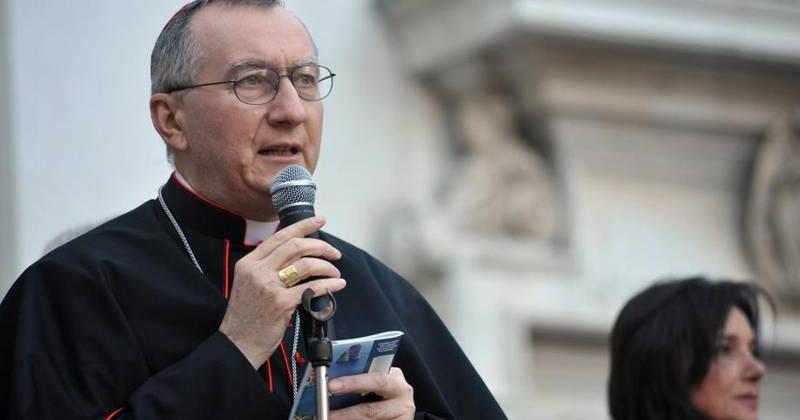In an interview with the Vatican Television Centre (CTV), the Vatican Secretary of State, Cardinal Pietro Parolin, talked about the issues Pope Francis will be focusing on during his visit to Korea: evangelization in Asia, the Asian youth gathering, the beatification of 124 Korean martyrs who are examples of lay saints and he Pope’s call for dialogue and reconciliation between the two Koreas.
In the full version of the interview, Cardinal Parolin also speaks of Asia’s desire for God, the significance of Pope Francis’ encounter with suffering Koreans, from the disabled to relatives of victims of the Sewol ferry disaster and the missionary dimension of the Korean Church. The first section of this interview can be found on the CTV website. The interview will be published in full on August 13.
“I must go to Asia, it is important,” Pope Francis said to journalists at the end of his visit to Brazil. Now the Pope is heading to North Korea, 15 years after John Paul II visited India. What is it that makes this visit so important?
“I would say that this visit is important for three reasons: firstly, this is the Pope’s first visit to the Far East, a part of the world which is gaining an increasingly important role in global politics and the global economy. Secondly, the Pope is going there to address the entire continent, not just Korea. Of course Korea is his destination but he aims to address all continent’s countries thanks to the Asian Youth Day celebrations, which will be taking place in Korea and attended by young people from nearby nations. And the third aspect, is the future, young people represent the future, so the Pope will be addressing the future of this continent, Asia’s future.
The meeting with young people will be at the heart of Francis’ visit, as in this highly competitive society, they often grow distant from the Church in their search for academic success. What will the Pope’s message to them be?
“The message I believe the Pope will bring to these young people is that they must become protagonists in Church life. Their presence must therefore be active, participatory, collaborative and co-responsible. The Church needs young people, John Paul II reminded us of this and now Francis reminds us too. So young people need to be protagonists in the Church and in the mission. Above all, young people are called to become evangelisers of their peers, always keeping their evangelizing mission alive; this is the message Francis will be bringing to Korea. Of course, he will also urge young people not to be blinded by the ephemeral values of our societies and of our way of finding answers to their questions and fears, in Jesus.”
What testimonies can the Korean martyrs, whom Francis will be beatifying in Seoul, offer the young generations of Asian Catholics?
“This is another reason why the Pope is going to Korea, to beatify the 124 Korean martyrs. I think it is important to highlight that there is only one priest in this group, all the others are lay people who had all kinds of professions, from the most humble to the most prestigious on the social scale. This echoes one of the characteristic features of the Korean Church and that is that it was born from the testimonies and efforts of the laity who managed to preserve and transmit the faith. I think this is the core message; that is that in the Church we are all called to work together on this mission of proclaiming the Gospel and we are all called to the sainthood, a sainthood which can take on many different forms but which must involve an effort on everyone’s part.”
The Pope will conclude his visit to Korea – which bishops have described as the last victim of the Cold War – with a mass for peace and reconciliation. Will this trip succeed in opening up new channels of dialogue between the leaders of the two Koreas and give hope to North Korea’s Catholics?
“This has always been the Holy See’s big hope and it has worked hard to try to achieve this. Obviously, there is still a great deal of tension in the peninsula and peace and reconciliation are needed. I believe that the Pope’s trip will also be a help in this sense; it will help ensure continued solidarity towards the needy and stimulate communication and dialogue, to the extent that it is able. Because I believe – and the Pope has stressed this on a number of occasions – that only through communication and dialogue can existing problems be resolved and that the means for communication and dialogue can always be found as long as there is willingness on everyone’s part.”
